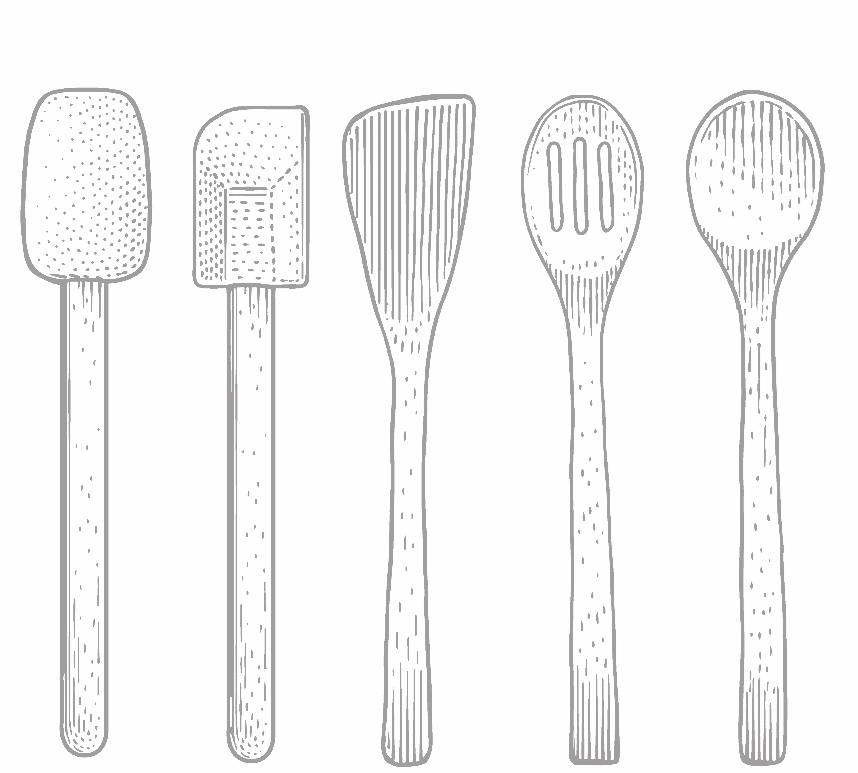

AT UNIVERSITY OF ALABAMA ATHLETICS






Dining on Campus
Allergen Management on Campus
Your Resources
Food Allergies & Celiac Disease
Your Management
In Case of a Reaction
Meal Plan Exemptions
Contacts


At Bon Appétit, we plan café-specific menus and cook from scratch in each location. From simmering stocks to finishing sauces and roasting meats, our approach to food allows us to provide fresh foods from whole ingredients. This allows students to customize many café options to meet their personal dietary goals. We would love to hear from you and can assist you in identifying food choices or even prepare meals tailored to meet your needs.
We take food allergies seriously. Our menu items are prepared from scratch in our kitchens each day using the freshest, highest quality selections available seasonally and regionally. If you have food allergy concerns, our well-trained chefs and/or registered dietitians are here to assist you with menu options to meet your dietary needs. Our chefs are the best resource for real time information about products and ingredients used in a specific dish that day.
While our culinary teams receive significant training about food allergens, please keep in mind that our dishes are prepared in open kitchens, the top-9 allergens are present in all Bon Appétit cafés, and other students may introduce allergens through foods they may bring into the cafe.


Bon Appétit at University of Alabama Athletics safely serves many students with food allergies every day. We have clear and concise protocols that take into account our open kitchens and from-scratch cooking methods to ensure students are fed safely. We also look to the recommendations from expert professional organizations, such as Food Allergy Research & Education (FARE), to guarantee our approach remains current and reflects best practice guidelines.
Per our food allergen awareness protocol, we work to ensure that:
• Managers and hourly associates participate in food allergy and celiac disease awareness training.
• Descriptive, responsible menu nomenclature identifies the top9 allergens and gluten in naming and descriptions for house-made menu items.
• Quick reference allergen icons are available on daily café signage and menus.
• Ingredient information available by request and questions directed to chefs, managers, or our registered dietitian.
• Relationships with food allergic guests are developed to foster direct communication in line with best practices outlined in the FARE restaurant guidelines (foodallergy.org).

Bon Appétit at University of Alabama Athletics can help you manage your food allergy(ies).

An individual meeting with chefs and managers to help you develop an individual plan to navigating your dining options. They can also help address ongoing questions and concerns.
Introduction to the dining management team, giving you direct access to individuals responsible for food preparation.
Access to cold and dry food storage to review ingredients personally (with advance notice).
Fresh gloves, utensils, or pans at made-to-order stations to reduce crosscontact concerns, upon request.
Access to individually packaged foods to replace bulk items that are at high-risk for cross-contact.


Bon Appétit at University of Alabama Athletics communicates about the following allergens and gluten using quick reference icons and descriptive menu naming.
Icons for the allergens and gluten can be found on menus and daily café signage. Icons, recipes, and purchased products are regularly reviewed for accuracy by our culinary and wellness teams.





Ingredient information and package labels with sub-ingredients (for example, mayonnaise) are available to guests upon request to review at anytime and questions are directed to chefs, managers, or our registered dietitian. This allows us to provide guests with the most up-to-date information in real time.
We also ensure that the name of the dish, or its restaurant-style description references any cooking methods which may increase the risk of cross-contact, such as frying. This provides students with much of the information they need while also letting them know when they may need to ask further questions.


Bon Appétit at University of Alabama Athletics provides options that are made without glutencontaining ingredients. These menu items are prepared using ingredients that do not contain gluten and steps are taken to manage the risk of cross-contact.
For many, the steps we take to avoid cross-contact with gluten-containing ingredients allow them to safely dine with us. If you react to smaller traces of gluten, we can work with you individually to determine appropriate dining options.


Olympic Café offers a variety of packaged products made without gluten-containing ingredients. These items are prepared with ingredients that are naturally without gluten-containing ingredients or alternatives to traditional gluten-containing options and are available in a dedicated refrigerator to minimize risk of cross-contact.



We believe in a holistic approach to wellness, in which purposeful menu offerings support the well-being of students, enhance performance, and inspire connection and creativity. Specific icons on the menu allow our students to make informed food choices throughout our café(s).


Contains absolutely no animal or dairy products.
Contains no meat, fish, poultry, shellfish, or products derived from these sources but may contain dairy or eggs.


You also have a responsibility for communicating and participating in the management of your food allergy. You are strongly encouraged to:
Understand your food allergy. Recognize common sources of, and avoid, foods to which you are allergic. Know the signs and symptoms of a reaction, and carry any medication prescribed to you for food allergen management
Notify appropriate parties of your allergy(ies). You are encouraged to contact your team dietitian and Madeline Stephens, MS, RDN, Senior Wellness Coordinator with Bon Appétit, to discuss specific nutrition concerns.
We also request you work directly with your team dietitian through the accommodations process.
Review menu names for food allergens. Our chefs use restaurant style descriptors to indicate allergens whenever possible. Look for clues such as ‘creamy’ to call out the use of milk or ‘breaded’ to indicate something may include egg, milk, and wheat.
Get to know your chefs. If you have a question at any point, please ask. Our chefs can help answer questions about ingredients in a particular food; they understand the importance of your need and work daily to keep you safe. If you do not know who these individuals are, please ask a cashier or line attendant to assist you.
Take steps to avoid cross-contact. Cross-contact occurs when a food comes into contact with another food and their proteins mix, creating the potential for accidental exposure.
• Consider making more selections from served stations.
• If choosing self-serve areas, talk to a chef or manager for the best options to reduce potential cross-contact concerns.
• Ask dining employees to change their gloves and to use a new utensil, or a fresh pan, at made-to-order stations.
• Avoid eating deep-fried foods. Frying oil is reused before being changed; this can lead to cross-contact because food fried in oil releases some of its protein, which is then absorbed by other foods in the same oil.
• At the salad bar or deli station, request produce or meat that is stored behind the counter.
Keep an open dialogue. Let our management team know what’s working, what’s not, and when in doubt – ask questions. If we do not hear from you, we believe that you are successfully navigating the dining facilities.


Recognize signs and symptoms of an allergic reaction.
• Know how and when to tell someone you might be having an allergy-related problem.
• Properly use medications.
• Carry emergency contact information with you.
• Carry any medication (e.g. auto-injector, Benadryl, etc.) with you at all times.
• Consider informing those you commonly dine with about your medical needs in case of an emergency.


FACE itching, redness, swelling
AIRWAY trouble breathing, coughing, wheezing, trouble swallowing and speaking




STOMACH pain, vomiting, diarrhea, nausea
TOTAL BODY hives, rash, weakness, paleness, sense of doom, loss of consciousness
If you or someone you know has signs of an allergic reaction, please take the following steps:
1. Get help immediately. Call 911 or indicate to someone that you need them to call for help on your behalf.
2. Do not go back to your room by yourself.
3. Administer epinephrine or take an antihistamine as prescribed by your doctor.
4. Follow-up with your physician or a medical provider.
5. Notify Madeline Stephens, MS, RDN at Bon Appétit as soon as possible so they can address your concerns, begin an investigation, and work with your team dietitian to make adjustments in your eating plan if needed.
If you have been prescribed an epinephrine auto injector, you should carry it with you at all times. Please know that Bon Appétit cannot store personal medications on behalf of students and guests.


Students requiring dining accommodations or seeking meal plan exemptions must reach out to their team dietitian. Appeals will be reviewed for approval.


Madeline Stephens, MS, RDN – Senior Wellness Coordinator Madeline.Stephens@cafebonappetit.com
Evan Culpepper - Executive Chef Evan.Culpepper@cafebonappetit.com
Micah Forehand - Sous Chef Micah.Forehand@cafebonappetit.com
FOOD-ALLERGIC INDIVIDUALS: Be aware that we handle and prepare egg, milk, wheat, shellfish, fish, soy, peanut, tree nut, sesame products and other potential allergens in all our kitchens. Please direct questions to a chef or manager.
